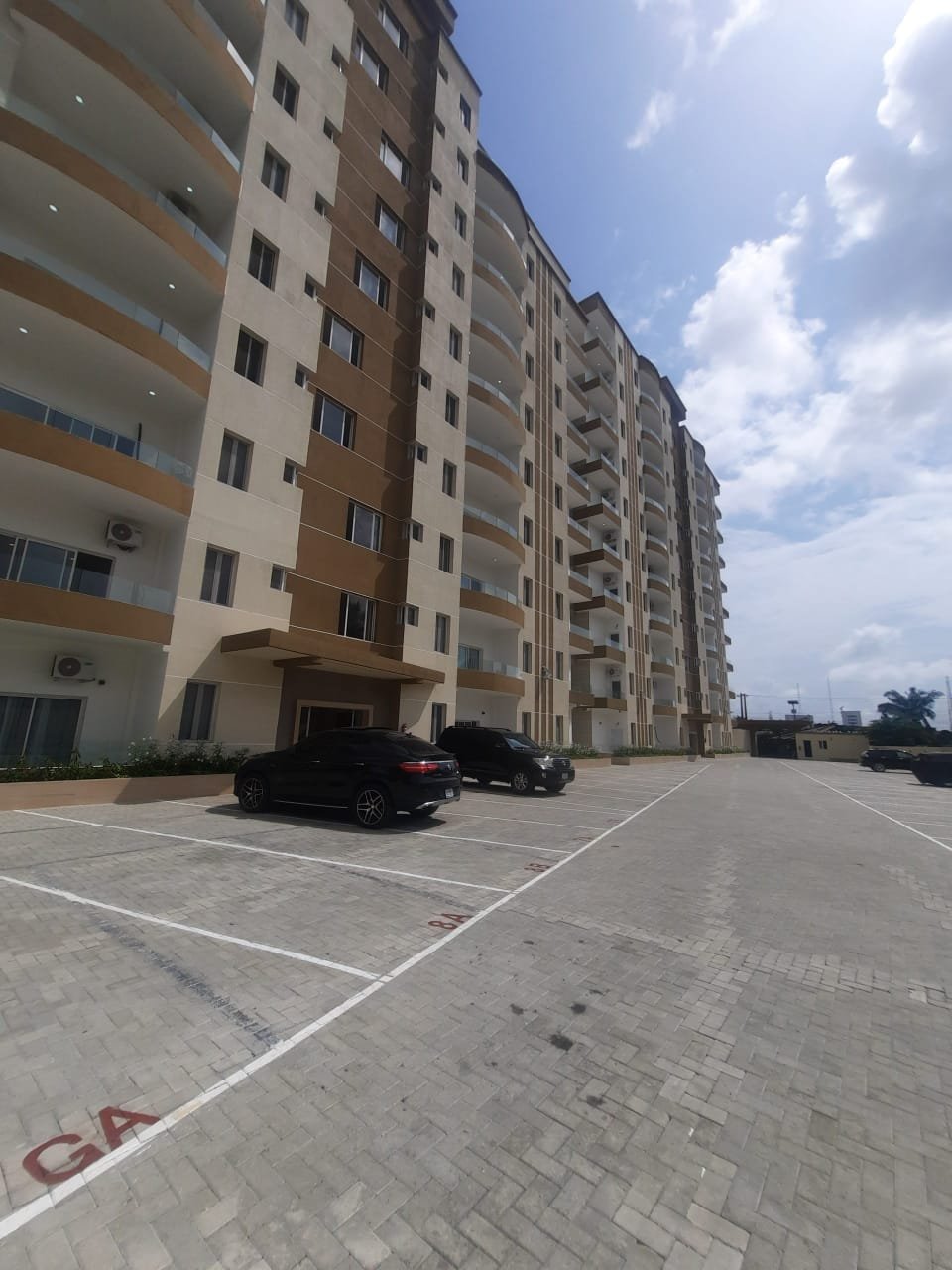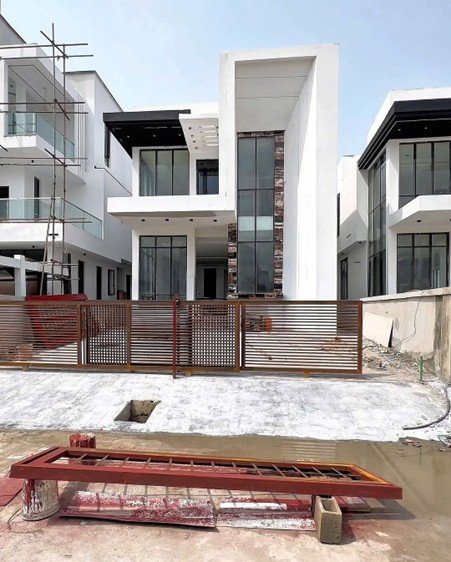
As urbanization in Nigeria accelerates and the population swells, investing in Nigerian real estate emerges as a strategic move with promising financial returns and future security. The Nigerian property market, bolstered by innovative financing options and government-backed initiatives, offers many investment opportunities that cater to a spectrum of interests. The rising demand for affordable housing in Nigeria and modern living spaces means that savvy investors can capitalize on these trends to foster community growth while reaping substantial rewards. By understanding the intricacies of real estate trends in Nigeria, investors can position themselves as key players in this dynamic industry, contributing positively to urban development and enhancing the quality of life for countless residents. This is the moment to explore how you can secure a profitable stake in this burgeoning market and play a pivotal role in shaping the future of Nigerian communities. As urbanization in Nigeria accelerates and the population swells, investing in Nigerian real estate emerges as a strategic move, offering not only promising financial returns but also future security. Consequently, the Nigerian property market, bolstered by innovative financing options and government-backed initiatives, presents many investment opportunities that cater to a spectrum of interests. Furthermore, the rising demand for affordable housing in Nigeria and modern living spaces means that savvy investors can capitalize on these trends to foster community growth while reaping substantial rewards. By understanding the intricacies of real estate trends in Nigeria, investors can position themselves as key players in this dynamic industry, thereby contributing positively to urban development and enhancing the quality of life for countless residents. Thus, this is the moment to explore how you can secure a profitable stake in this burgeoning market and play a pivotal role in shaping the future of Nigerian communities. Capitalizing on Urbanization Nigeria's rapid urbanization presents a golden opportunity for real estate investors. Understanding this trend and identifying key investment opportunities in urban centers is crucial for success in the Nigerian property market. Understanding Urbanization in Nigeria Urbanization in Nigeria is reshaping the country's landscape and economy. This demographic shift is driven by several factors, including economic opportunities, improved infrastructure, and city social amenities. The pace of urban growth in Nigeria is remarkable. According to recent studies, the urban population is expected to double by 2050, creating an unprecedented demand for housing and commercial spaces. This urban expansion is not without challenges. Issues such as inadequate infrastructure and housing shortages are prevalent. However, these challenges present opportunities for investors to contribute to urban development while potentially earning significant returns. Urbanization trends are particularly notable in major cities like Lagos, Abuja, and Port Harcourt, where the influx of people is driving real estate demand to new heights. Investment Opportunities in Nigeria's Cities The rapid urbanization in Nigeria has created a diverse range of investment opportunities in the real estate sector. From residential developments to commercial properties, the market is ripe for strategic investments. One key area of opportunity is in affordable housing. As cities grow, there's an increasing need for quality, affordable homes for the burgeoning middle class. Investors who can provide solutions in this sector stand to benefit significantly. Another promising avenue is in mixed-use developments. These projects, which combine residential, commercial, and sometimes industrial spaces, are becoming increasingly popular in urban areas. Infrastructure-related real estate, such as properties near new transport links or in developing urban corridors, also presents lucrative opportunities. As cities expand, these areas often see rapid appreciation in property values. Commercial real estate, particularly office spaces and retail centers in prime urban locations, continues to be a strong investment option, driven by the growth of businesses in major cities. Navigating the Nigerian Property Market To succeed in Nigerian real estate, investors must understand current market trends and the growing demand for affordable housing. This knowledge is key to making informed investment decisions. Real Estate Trends in Nigeria The Nigerian property market is dynamic, with several trends shaping its landscape. Understanding these can help investors make informed decisions and capitalize on emerging opportunities. One significant trend is the growing interest in sustainable and eco-friendly properties. As environmental awareness increases, properties with green features are becoming more attractive to both buyers and tenants. Digital transformation is also impacting the real estate sector. Online property listings, virtual tours, and digital transaction processes are becoming increasingly common, changing how properties are marketed and sold. The rise of co-living and co-working spaces is another notable trend, particularly in urban areas. These flexible living and working arrangements are gaining popularity among young professionals and startups. Market analysis shows that despite economic challenges, certain segments of the real estate market, particularly in prime locations, continue to show resilience and growth potential. Affordable Housing Nigeria: A Growing Demand The demand for affordable housing in Nigeria is reaching unprecedented levels, driven by rapid urbanization and a growing middle class. This presents a significant opportunity for investors who can provide quality housing at accessible price points. Government initiatives aimed at addressing the housing deficit are creating a supportive environment for affordable housing projects. Investors who align their strategies with these initiatives can benefit from incentives and partnerships. Innovation in construction techniques and materials is playing a crucial role in making affordable housing viable. Methods such as prefabrication and the use of local, sustainable materials are helping to reduce costs without compromising quality. The affordable housing sector also offers opportunities beyond just construction. Services related to property management, maintenance, and community development in affordable housing complexes are emerging as potential areas for investment. Market reports indicate that the demand for affordable housing is not just in major cities but also in secondary cities and peri-urban areas, broadening the scope for potential investments. Strategic Investment Approaches Success in the Nigerian real estate market requires a strategic approach. Leveraging government initiatives and identifying prime locations for growth are key components of a winning investment strategy. Leveraging Government Initiatives Government policies and initiatives play a crucial role in shaping the real estate landscape in Nigeria. Savvy investors can leverage these to enhance their investment strategies and outcomes. One key area is the government's focus on addressing the housing deficit. Various schemes and incentives are in place to encourage private sector participation in affordable housing development. Investors who align their projects with these initiatives may benefit from tax breaks, easier land acquisition, or subsidized financing. The government's infrastructure development plans also present opportunities. Areas slated for major infrastructure projects often see significant appreciation in property values. Staying informed about these plans can help investors make strategic location choices. Public-private partnerships (PPPs) are becoming increasingly common in the real estate sector. These arrangements can provide investors with access to prime land and government support, while sharing the risks of large-scale developments. Regulatory changes, such as improvements in land registration processes and property rights, are also creating a more favorable environment for real estate investment. Keeping abreast of these changes is crucial for navigating the market effectively. Identifying Prime Locations for Growth Selecting the right location is crucial for maximizing returns in real estate investment. In Nigeria's dynamic market, identifying areas with high growth potential requires careful analysis and foresight. Emerging urban corridors, particularly those benefiting from new infrastructure projects, often offer excellent investment opportunities. These areas typically see rapid appreciation as development progresses. Secondary cities are increasingly attracting attention from savvy investors. While major cities like Lagos and Abuja remain popular, smaller cities often offer lower entry costs and significant growth potential. Industrial and commercial hubs are another focus area. As Nigeria continues to diversify its economy, areas designated for industrial or technological development can become hotspots for both residential and commercial real estate. Coastal areas and waterfront properties, especially those with tourism potential, can offer unique investment opportunities. However, these investments should be balanced with considerations of environmental sustainability and climate change impacts. It's also important to consider socio-economic factors when selecting locations. Areas with improving security, growing employment opportunities, and rising income levels often correlate with increasing property values and rental demand.





(2) Comments
Ernest Isibor
April 1, 2025I am an investor willing to invest
Collins Ozigbo
April 1, 2025Real Estate is the oil in Nigeria